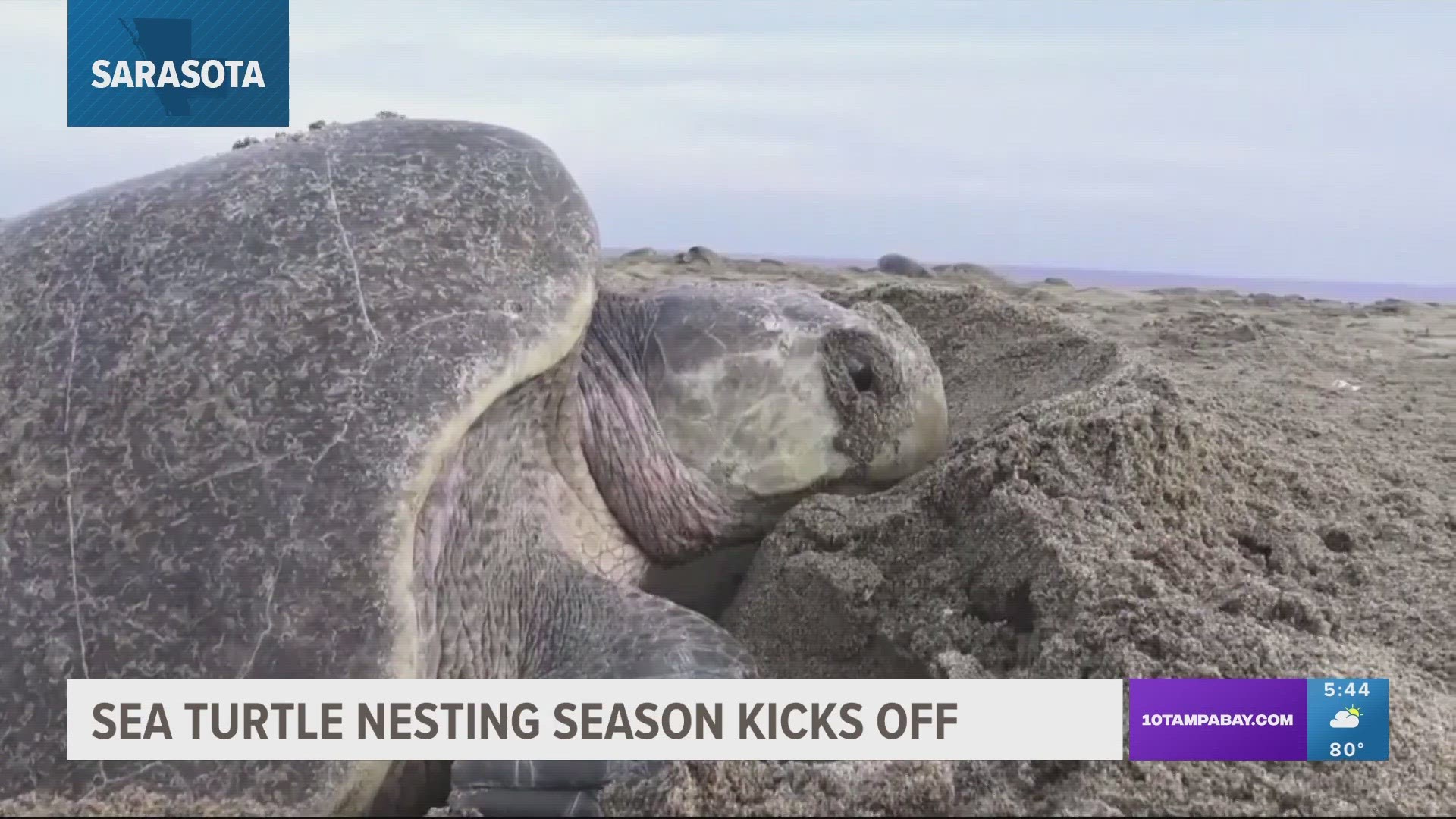SARASOTA, Fla. — May 1 marks the official first day of sea turtle nesting season. Beachgoers can expect to see nests labeled and roped off. However, biologists at Mote Marine Laboratory & Aquarium who monitor the sea turtles along Sarasota County beaches say they have had a high number of pre-nesting season activities.
"This year, the turtles, especially, were bad at reading the calendar," Senior Biologist & Conservation Manager at Mote Marine Laboratory Melissa Macksey said.
Macksey said volunteers helping to locate nests recorded the most sea turtle nests for any April month. A total of about 30 nests were discovered ahead of the season which runs from May 1 to Oct. 31.
She said climate change has played a critical role and has impacted the behaviors of sea turtles.
"As the water heats up, the turtles get ready and start nesting in April," Macksey explained. "We don't know necessarily if that means we're going to have a high year or a lower year, but we know we're off to a really good start."
Researchers said even though the sea turtle population is in danger, there's been an increase in the number of nests on Florida's Gulf Coast over the last 15 years. While Macksey said it is hard to predict the numbers for this year, they expect anywhere from 3,500 to 5,000 nests in the Sarasota-Manatee County area.
"The key that we see the most nesting on is Casey Key," she said. "It takes about 40% of our nesting on the five islands we cover but we see nests every year on every island from Long Boat Key to Venice where we patrol."
Researchers studying sea turtles said they have seen more cases of nighttime disorientation over the last several years because of bright lights from homes and the horizon. They are encouraging people to help make the beach environment safe for the creatures to nest in peace.
"Enjoy the beach during the day and have a great time but when you're done, when it's nighttime, give the beach back to the turtles," Macksey said. "Leave it natural, take everything with you, pick up trash, fill in holes, turn off your lights and take your furniture with you."
Biologists advise that if you stumble upon a nest or a sea turtle trying to nest, leave it alone or call Florida Fish and Wildlife Conservation Commission (FWC) if it is distressed or going the wrong way.
If you see anyone actively damaging a nest, the best thing to do is call your local law enforcement's non-emergency line.

